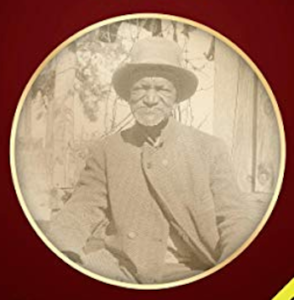
John Jea
*John Jea's birth is celebrated on this date in 1773. He was a Black writer, preacher, abolitionist, and sailor.
Little is known about John Jea's life apart from what he wrote in his autobiography, The Life, History, and Unparalleled Sufferings of John Jea, the African Preacher (1811). Jea said that he was born near Calabar in the Bight of Biafra, Nigeria. Jea stated that he, his parents, and his siblings were kidnapped by slave traders and sold into slavery in New York City when he was two and a half years old.
Jea was purchased by a Dutch couple, Oliver and Angelika Tribune. His master initially sent him to church services as a punishment, but Jea became a devout Christian and was baptized in the 1780s. After passing through a series of enslavers, Jea seems to have convinced the final one that his resistance as an enslaved person merited manumission. The court freed him based on being a faithful, baptized Christian. In the 1790s, Jea traveled to Massachusetts, Louisiana, South America, and various European countries as an itinerant preacher, mariner, and shipboard cook.
Between 1801 and 1805, he lived and preached in Liverpool, England. He then worked as a cook on ships traveling around North America, the East Indies, South America, the West Indies, and Ireland until 1811, when French forces captured his ship. Jea spent four years being moved around northern France before his eventual release at the close of the Napoleonic Wars. Jea was one of the first black African poets to write an autobiography. His autobiography was written in Portsea between 1815 and 1816 but was largely unknown until it was rediscovered in 1983.
Henry Louis Gates Jr. has argued that Jea's autobiography forms a "missing link" between 18th-century slave narratives, which focused on spiritual redemption, and later 19th-century narratives, which rhetorically championed the political cause of abolition. Religious themes dominate Jea's autobiography. Indeed, Jea describes his literacy acquisition as a miraculous visit from an angel who teaches him to read the Gospel of John. However, political themes are mixed with these religious aspects, and the work consistently argues that slavery is a fundamental injustice in need of abolition.
Gates calls Jea's work "the last of the great black 'sacred' slave autobiographies." Jea also published a hymn book called A Collection of Hymns, Compiled and Selected by John Jea, African Preacher of the Gospel (1816). It contains 334 songs, including 29 of his compositions.
Jea reported marrying three times: first to a Native American woman called Elizabeth, who he said had been executed for killing their child; then to Charity, a Maltese woman who died; and finally, to Mary, an Irishwoman. After returning to England, Jea settled in Portsea near Portsmouth in England, where he published his autobiography and hymnbook during the 1810s. He was still traveling as late as October 1817, preaching in St. Helier in Jersey, where he died.